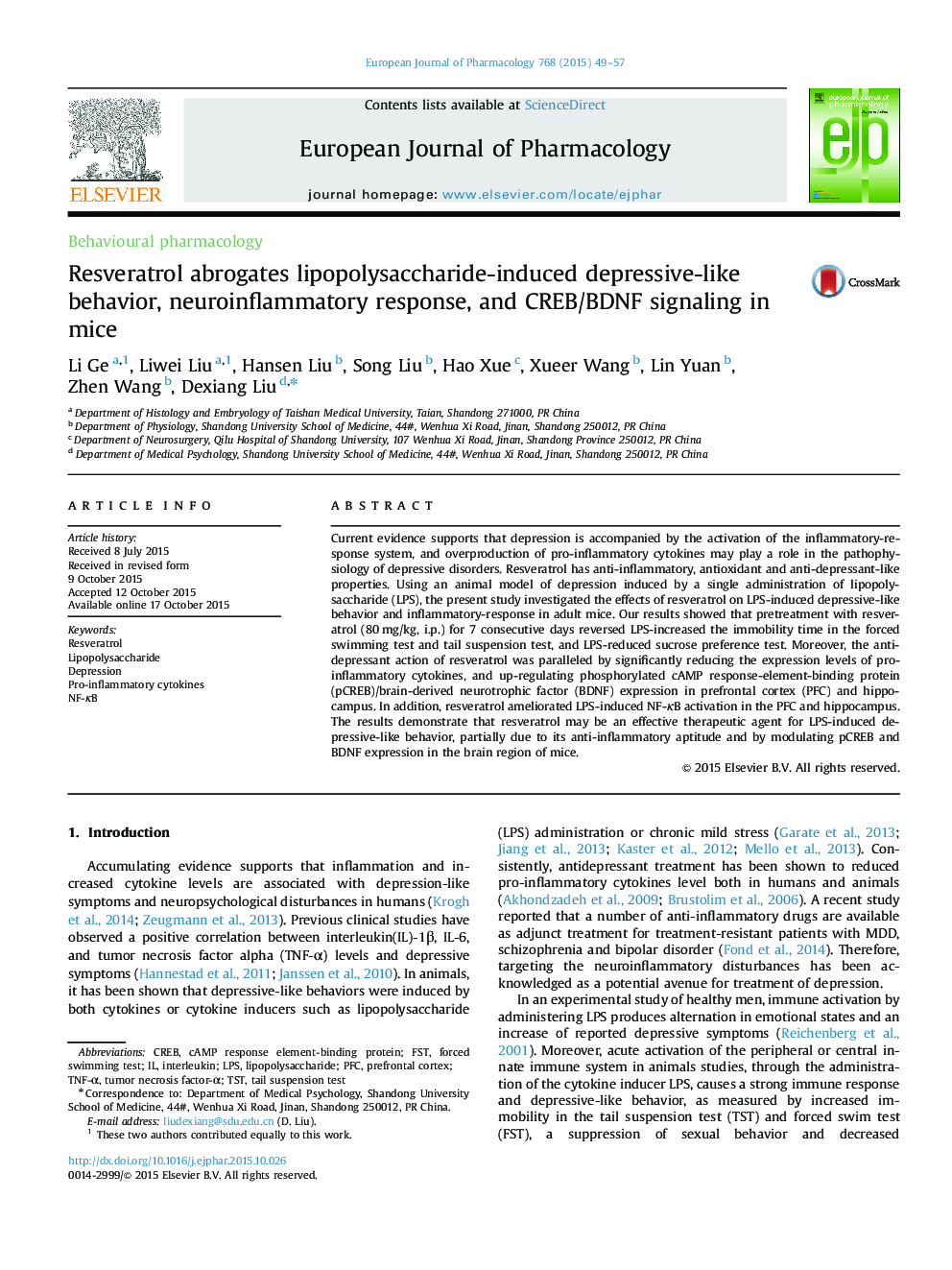| Article ID | Journal | Published Year | Pages | File Type |
|---|---|---|---|---|
| 2531249 | European Journal of Pharmacology | 2015 | 9 Pages |
Current evidence supports that depression is accompanied by the activation of the inflammatory-response system, and overproduction of pro-inflammatory cytokines may play a role in the pathophysiology of depressive disorders. Resveratrol has anti-inflammatory, antioxidant and anti-depressant-like properties. Using an animal model of depression induced by a single administration of lipopolysaccharide (LPS), the present study investigated the effects of resveratrol on LPS-induced depressive-like behavior and inflammatory-response in adult mice. Our results showed that pretreatment with resveratrol (80 mg/kg, i.p.) for 7 consecutive days reversed LPS-increased the immobility time in the forced swimming test and tail suspension test, and LPS-reduced sucrose preference test. Moreover, the antidepressant action of resveratrol was paralleled by significantly reducing the expression levels of pro-inflammatory cytokines, and up-regulating phosphorylated cAMP response-element-binding protein (pCREB)/brain-derived neurotrophic factor (BDNF) expression in prefrontal cortex (PFC) and hippocampus. In addition, resveratrol ameliorated LPS-induced NF-κB activation in the PFC and hippocampus. The results demonstrate that resveratrol may be an effective therapeutic agent for LPS-induced depressive-like behavior, partially due to its anti-inflammatory aptitude and by modulating pCREB and BDNF expression in the brain region of mice.
